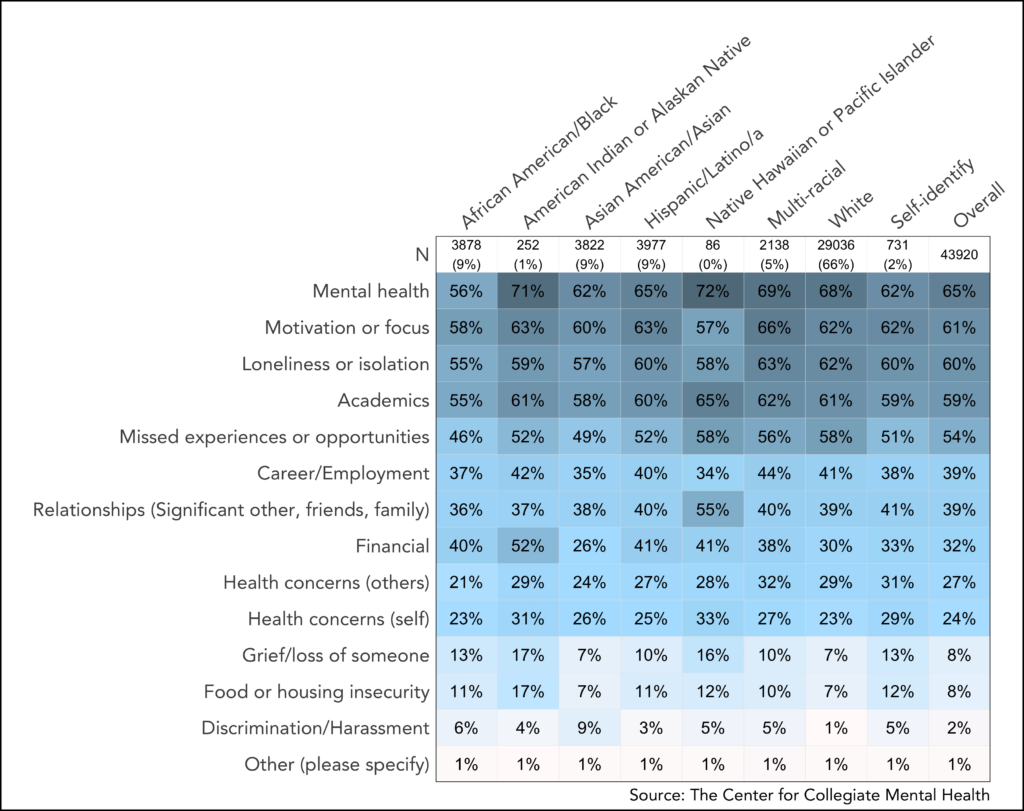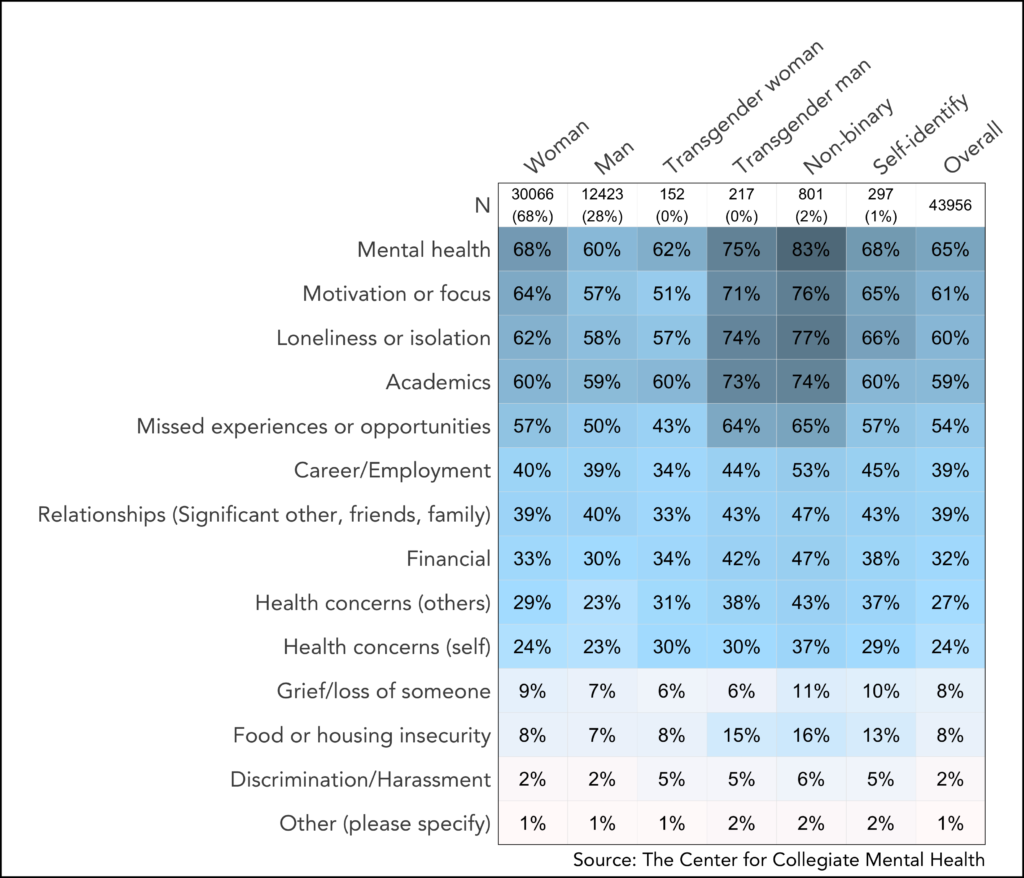New data provides demographic analysis of mental health impact of COVID-19 among college students
According to the report, Indigenous students reported the highest rates of negative mental health impacts during the pandemic at more than 70 per cent.

COVID-19 is disproportionately affecting the mental health of individuals with intersecting identities, according to data released by the Center for Collegiate Mental Health (CCMH). The findings arise from a five-part series examining how the pandemic is affecting the mental health of college students.
CCMH analyzed trends among 47,797 students seeking mental health services in the U.S. starting in Fall 2020 across 9 different demographic variables.
According to the report, Indigenous students reported the highest rates of negative mental health impacts during the pandemic at more than 70 per cent, followed by multi-racial individuals at 69 per cent, white students at 68 per cent, and Hispanics at 65 per cent. Overall, 65 per cent of students reported suffering from mental health issues as a result of COVID-19.
Black students reported the highest rates of grief and loss at 13 per cent, compared to 8 per cent overall. And 52 per cent of students identifying as Alaska Native or American Indian said they struggled with financial insecurity, compared to 32 per cent of students overall.

A comparison of straight women of all races to straight men of all races suggests women are faring worse across the board.
LGBTQ students are another vulnerable group identified in the survey, with higher rates of mental health struggles, feelings of isolation, and academic troubles. Transgender men and non-binary students were among the most likelly to be affected.

It has been nearly a year since much of the world shut down due to COVID-19 restrictions.
In the early months of the lockdowns, we saw that Generation Z workers were the most likely victims of economic slowdowns, with a May 2020 survey suggesting workers under the age of 25 experienced 93 per cent higher rate of layoffs than Millennials in the 35 and older group in March 2020.
We’ve also seen how the pandemic and the shuttering of resources has impacted primary caregivers, many of whom are women, leading to disproportionatly negative career impacts.
The pandemic has also brought racism and discrimination to the forefront, with Anti-Asian attacks on the rise in parts of the U.S.
And data suggests Black and Indigenous communities in the U.S. are more likely to suffer negative effects of COVID-19, due to racism and discriminatory practices in the health care system. Disabled individuals within these communities are particularly at risk.

Like what you see here? Subscribe to our newsletter and let’s keep in touch!
